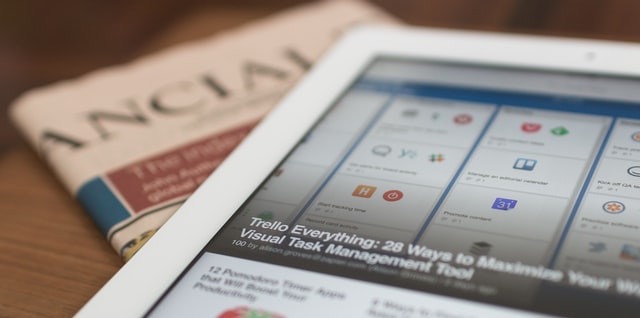

Living in the era of information explosion, we are overwhelmed by miscellaneous advertisements and news every single day. According to the bar chart, I found that American youngers and pre-adult are more concerned about social and international news and less concerned about entertainment or arts. For example, 69% of the people pay a great attention to news like environmental and natural disasters, while only 30% care about news talking about arts and culture.
As for me, the kind of news that I usually focus on would be social issues, and that is also the reason why I volunteered to be the leader in our school’s volunteering club. There are lots of underprivileged groups in our society; however, we have been ignoring them even that we knew their existence. It was not until I met a girl diagnosed with Down syndrome had I knew how hard their lives were, hence I am more aware of the news regarding social issues. Also, I often read about international news happening around the world. For instance, the protests sparked by a controversial extradition bill in hong kong, and the U.S.-China trade war. In my opinion, reading news is also a way of learning, but celebrities’ gossips aren’t educational at all, so I barely pay heed to news like that.
It is a mixed blessing to live in a rapid-developing age, while we can get any information anytime and anywhere, there is a lot of fake news on the Internet, in which people posted them for attention and fame. I think fake news is not only misleading but it is putting many youngsters in hazard because we usually read the news on our smartphones. I myself had an unforgettable experience of deeming fake news real, it was the protest that took place in Hong Kong last year. At first, I read a so-called “Cliff’s notes version” of the extradition bill, which I realized it was deliberately obscured and exaggerated by media after searching for deeper details about the extradition agreement. Well goes the saying, “A fall in a pit, a gain in the wit.” Only when I experienced how the fake news affects people did I know the importance to stay clear-minded in this fancy world.
Words to learn
information explosion (n) 資訊大爆炸
miscellaneous (adj) 各種各樣的
pre-adult (n) 未成年人
underprivileged groups (n) 弱勢群體
be diagnosed with 被診斷患有
Down syndrome (n) 唐氏綜合症
controversial (adj) 有爭議的
extradition bill (n) 引渡法案
pay heed to 注意=pay attention to
a mixed blessing (n) 好壞參半的事情
a rapid-developing age (n) 快速發展的時代
hazard (n) 危險=danger
Cliff’s notes version of (n) 懶人包**
deliberately (adv) 故意地
obscured (adj) 將...模糊
exaggerated (adj) 將...誇大
**CliffsNotes 以前是美國一家很大的出版社(現在被別人買走)
它最有名的系列是把世界名著改寫成簡短的版本,給年輕的讀者或不想讀原著的讀者看
Grammar Focus
-
Contrast ( direct opposition) 比較相異點
For example, 69% of the people pay a great attention to news like environmental and natural disasters, while only 30% care about news talking about arts and culture.
生活在資訊大爆炸的時代,每天都有各種各樣的廣告和新聞讓我們不知所措。 根據條形圖,我發現美國年輕人和未成年人較關注社會和國際新聞,而較少關注娛樂或藝術。 例如,69%的人非常關注環境與自然災害等新聞,而只有30%的人關心談論藝術和文化的新聞。
對於我來說,我通常關注的新聞是社會議題,這也是我自願成為學校義工社社長的原因。 我們社會中有許多弱勢群體; 但是,即便人們知道他們的存在,卻一直無視它們。 直到我遇到一個被診斷患有唐氏綜合症的女孩,我才知道他們的生活有多麼艱難,因此我便更關注有關社會議題的新聞。 另外,我經常閱覽世界各地發生的國際事務。 例如,由富有爭議的引渡法案引起的香港抗議活動以及中美貿易戰。 我認為,閱讀新聞也是一種學習的方式,但是名人的八卦根本就沒有教育意義,所以我幾乎不注意這種新聞。
生活在一個快速發展的時代,是件好壞參半的事情,儘管我們可以隨時隨地獲取任何信息,但互聯網上有很多假新聞,人們在其中發布它們以引起關注和成名。 我認為假新聞不僅會誤導人,而且還會使許多年輕人處於危險之中,因為我們通常會在智能手機上閱覽新聞。 我本人曾有誤將假新聞視為真實的刻骨銘心的經歷,那是去年在香港發生的抗議活動。 起初,我看了所謂引渡條例的「懶人包」,在尋找有關引渡協議的更深層細節後,我意識到媒體故意將其模糊和誇大。 俗話說得好:「不經一事,不長一智」 。只有當我了解到假新聞如何影響人們時,我才知道在這個絢爛的世界中保持頭腦清醒的重要性。
How to form a comparison and contrast Essays
-
To explain similarities and differences 找出相同/相異點
-
Make a point 提出觀點
3. Supporting details 根據提出的觀點寫出對應的範例佐證
如有兩個範例( 一個寫切身經歷/另一個寫時事 / 研究資料) 讓你的觀點更具說服力